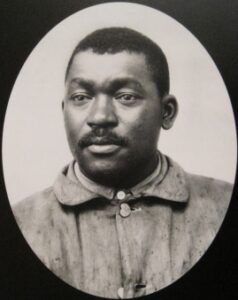 Answers for the Week of 11/06/25:
Answers for the Week of 11/06/25:
Q: What labor union was founded on November 12, 1873, making it one of the oldest continuously operating African American labor unions in the United States? And who did they represent?
A: The Memphis Musicians Union Local 71 (later Local 538 & merged into Local 71/10).
Formed initially by Black musicians shut out of white-only unions, this organization helped secure fair pay and performance rights for performers on Beale Street, riverboats, and touring shows. It played a major role in shaping the Memphis sound long before Stax and Sun Studios emerged.
Q: What famous Memphis building was destroyed by fire on November 2, 1865, just months after the Civil War, erasing one of the city’s earliest public gathering halls?
A: The old Memphis Theatre on Court Square
Before the fire, the theater hosted political debates, concerts, and traveling shows. Its destruction marked a symbolic turning point for a city struggling to rebuild after wartime occupation, yellow fever fears, and economic instability. The site was later redeveloped as downtown’s commercial district expanded.
Q: What well-known Memphis business first introduced its holiday lighting tradition in November 1956, helping make the company a major community landmark each winter season?
A: The Mid-South Holiday Parade & Goldsmith’s “Lighting of the Peabody Tree” tradition.
In 1956, Goldsmith’s department store coordinated with the Peabody Hotel to launch an elaborate holiday lighting ceremony that drew thousands downtown. It helped establish late-November as the start of Memphis’s holiday shopping season and became a signature civic event for decades. This year’s takes place on Friday, November 28.
Answers for the Week of 10/09/25:
Q: What FBI sting in 2005 caught Memphis politicians taking bribes from undercover agents?
A: Operation Tennessee Waltz
The FBI set up a fake company and offered money to lawmakers in exchange for political favors. Several Memphis politicians, including State Senator John Ford, were caught on tape accepting bribes. The scandal led to arrests and convictions, damaging trust in Tennessee politics.
Q: What type of scam in the 1880s hurt Memphis’s reputation as the “Cotton Capital”?
A: The Cotton Exchange price-fixing scandal.
Some cotton traders in Memphis spread false reports about cotton prices to trick the market. These lies caused financial losses for many honest traders and embarrassed the city’s cotton industry. The scheme showed how important Memphis was to the global cotton trade – and how easily it could be shaken by fraud.
Q: What Memphis funeral home was at the center of a big scam in the 1990s, cheating families out of money they paid for future funerals?
A: The Lamplighter Funeral Home scandal
The funeral director told families their pre-paid funeral money was safe, but he secretly kept the funds for himself. When the fraud was discovered, families learned they had no savings left and no funeral plans. It became one of Memphis’s most infamous consumer fraud cases.
Answers for the Week of 9/11/25:
Q: What was the first public high school established in Memphis and when did it open?
A: Central High School, which opened in 1894.
Central High School is the oldest public high school in Memphis and is known for its distinctive Gothic Revival architecture, designed by architect Walk C. Jones. Over the years, it has produced notable alumni in politics, entertainment, and sports, remaining a cornerstone of Memphis education for well over a century.
Q: In what year did Memphis City Schools officially begin desegregation, and which landmark federal ruling prompted it?
A: 1961, following Brown v. Board of Education
Although the Supreme Court ruled school segregation unconstitutional in 1954, Memphis City Schools did not begin integrating until 1961, starting with 13 Black first-graders entering previously all-white schools. This process, known as the “Memphis 13,” was met with intense resistance but marked a pivotal step toward educational equity in the city.
Q: Which Memphis school was originally founded in 1912 as the West Tennessee State Normal School, designed to train teachers?
A: The University of Memphis
The institution began as a teacher-training school and evolved into Memphis State College, then Memphis State University, before becoming the University of Memphis in 1994. Today, it’s a major research university serving more than 20,000 students and remains deeply connected to the city’s educational and cultural life.
Answers for the Week of 8/14/25:
Q: What major Memphis cultural institution officially opened its doors to the public in August 1991, permanently changing the landscape of Downtown Memphis?
A: The Memphis Pyramid
The Pyramid opened in August 1991 with a concert by country star George Strait. Originally envisioned as a multi-purpose arena for sports and entertainment, it later hosted the University of Memphis basketball team, concerts, and other large events before eventually being converted into a Bass Pro Shops megastore in 2015.
Q: In August 1878, what deadly event struck Memphis, killing more than 5,000 residents and forcing the city to surrender its charter?
A: The Yellow Fever Epidemic of 1878
Beginning in mid-August, yellow fever swept through Memphis after cases were reported among riverboat passengers. The outbreak decimated the population, killing thousands and prompting a mass exodus. The financial and political collapse from the epidemic was so severe that Memphis lost its city charter in 1879 and was governed by the state for more than a decade.
Q: What important civil rights–related trial began in Memphis in August 1969?
A: The wrongful termination case of the Memphis sanitation workers
The case sought to reinstate workers who were dismissed for participating in the 1968 strike that brought Dr. Martin Luther King Jr. to Memphis. Although the strike ended with a settlement, some workers weren’t rehired, leading to a legal battle the following year. The trial kept the legacy of the strike alive and underscored the long-term fight for workers’ rights in Memphis.
 Answers for the Week of 7/10/25:
Answers for the Week of 7/10/25:
Q: What Memphis-based radio station helped promote hair care products to Black listeners in the 1940s and 1950s, contributing to the success of beauty entrepreneurs in the region?
A: WDIA
As the first Black-formatted radio station in the U.S., WDIA broadcast ads for hair products like pressing oils, pomades, and hot combs – many made and sold by local entrepreneurs. These ads helped small Black-owned beauty businesses reach wider audiences and grow their clientele during a time when mainstream advertising excluded them.
Q: Which iconic Memphis singer, known for her elaborate hairstyles and glamorous stage presence, inspired a generation of Black women’s beauty trends in the 1960s and ’70s?
A: Carla Thomas
Often called the “Queen of Memphis Soul,” Carla Thomas rose to fame with Stax Records and was admired not just for her voice but also her polished, ever-changing hairstyles. From beehives to bouffants, her look was emulated by fans and reflected the intersection of music, beauty, and Black womanhood in Memphis culture.
Q: Which Memphis salon, founded in 2009, became the city’s first full-service natural hair salon and hosts the “Naturals in the City” hair‑and‑wellness expo?
A: A Natural Affair Beauty Lounge
Founded by TaKeisha Berry‑Brooks, this salon in Memphis and Cordova specializes in natural hair care and has become a hub for the natural hair community. Since its debut in 2009, the salon has hosted its signature “Naturals in the City” expo, which fosters education, empowerment, and celebration of kinkier hair textures.
Answers for the Week of 6/12/25:
Q: What catastrophic event struck Memphis in 1865, resulting in one of the deadliest maritime disasters in U.S. history?
A: The explosion of the Sultana steamboat.
The Sultana was overloaded with over 2,000 recently released Union POWs when its boiler exploded on April 27, 1865, just days after the end of the Civil War. More than 1,100 people died, but the tragedy received little national attention because of other news related to the end of the Civil War – especially the fact that President Lincoln’s assassin John Wilkes Booth had been killed just the day before.
Q: What rare event from 1811–1812 altered the course of the Mississippi River and caused widespread fear in the area now known as Memphis?
A: The New Madrid Earthquakes.
Though centered in present-day Missouri, the ongoing New Madrid earthquakes were so powerful they rang church bells in Boston and temporarily reversed the Mississippi River’s flow. Memphis, not yet officially founded, was in the affected region, and the quakes remain among the strongest ever recorded in North America.
Q: What rare event in March 1892 shut down the whole city of Memphis for days on end?
A: The Great Snowstorm of 1892.
On March 16–17, 1892, Memphis was hit with an extraordinary snowstorm that left the city with over 18 inches of snow in less than 24 hours. Streetcars stopped running, businesses closed, and residents resorted to sleds and makeshift transport. It’s still referenced as the worst snowstorm in Memphis history.
Answers for the Week of 5/15/25:
 Q: What annual Memphis festival was founded in 1977 and originally focused on celebrating a single international culture?
Q: What annual Memphis festival was founded in 1977 and originally focused on celebrating a single international culture?
A: Memphis in May International Festival
The festival began as a way to honor Memphis’s global connections and has since evolved into a month-long celebration that includes the Beale Street Music Festival, World Championship Barbecue Cooking Contest, Great American River Run, and an International Salute to a different country each year—ranging from Ghana to Japan.
Q: What Memphis music festival was originally held at the Mid-South Fairgrounds and, since it moved, had to be canceled once due to flooding of the Mississippi River?
A: Beale Street Music Festival
In 2011, historic Mississippi River flooding forced organizers to cancel the festival just days before its start—only the second time in history it was called off. Normally held in Tom Lee Park, the festival has also had to adapt to construction projects and, more recently, COVID-related disruptions.
Q: Tom Lee Park hosts many of Memphis’ major events—what was Tom Lee’s job, and what act in 1925 led to the park being named in his honor?
A: Tom Lee (pictured right) was a Black riverworker and Memphis hero.
In 1925, he saved 32 people from drowning when the steamboat M.E. Norman capsized. Despite not being able to swim himself, Lee used his small skiff to make repeated trips to rescue passengers from the Mississippi River. His bravery led to the naming of Tom Lee Park, which today stands as a central venue for Memphis in May and a site of historical remembrance.
Answers for the Week of 4/17/25:
Q: What Memphis-based company transformed supermarket marketing in the early 1900s, and how did they do it?
A: Piggly Wiggly.
Piggly Wiggly, founded in Memphis in 1916 by Clarence Saunders, was the first self-service grocery store, changing the way Americans shopped. Its innovative model included product branding, standardized pricing, and aisle signage—making in-store communication and marketing a core part of the shopping experience, and a model for modern supermarkets worldwide.
Q: When did telephone service first come to Memphis, and what company provided it?
A: 1879, provided by the Southern Bell Telephone and Telegraph Company.
Memphis was one of the earliest Southern cities to adopt telephone technology, just three years after Alexander Graham Bell’s invention was patented. Southern Bell, which later became part of AT&T, installed the first switchboard downtown, connecting a handful of businesses and wealthy residents. The telephone quickly became essential to Memphis commerce and communication and evolved alongside the city’s industrial growth.
Q: When was The Commercial Appeal founded, and what two names has it held?
A: The Commercial Appeal was founded in 1841, originally as The Memphis Appeal, and later merged with The Memphis Commercial to form its current name.
During the Civil War, The Appeal became famous as the “Moving Appeal” because its editors physically moved the press across the South to avoid Union capture—eventually printing from as far away as Georgia. After the war, the paper returned to Memphis and grew into the city’s leading newspaper, covering everything from Reconstruction to civil rights, politics, and culture. Its long history and regional influence earned it a Pulitzer Prize for Public Service in 1923 for exposing the Ku Klux Klan.
Answers for the Week of 3/20/25:
Q: Which Memphis civil rights leader helped desegregate Memphis schools and became the first Black woman elected to the Memphis City School Board?
A: Maxine Smith.
Maxine Smith was a civil rights leader and educator who played a crucial role in desegregating Memphis schools. As executive secretary of the Memphis NAACP for over 30 years, she led efforts to integrate Memphis State University (now the University of Memphis) after being denied admission due to her race. She later became the first Black woman elected to the Memphis City School Board, where she advocated for better education and racial equity in the city’s public schools.
Q: Which Memphis-born journalist and activist fought against lynching and was also a leader in the early women’s suffrage movement?
A: Ida B. Wells.
A pioneering journalist and activist from Memphis, Wells is best known for her anti-lynching crusade, but she was also a strong advocate for women’s rights. She co-founded the National Association of Colored Women (NACW) and was one of the few Black women involved in the early suffrage movement, challenging white suffragists who ignored Black women’s voting rights. Despite facing threats and being forced to leave Memphis for her own safety, Wells continued to fight for voting rights and equal treatment for Black women nationwide.
Q: When did Memphis achieve its first female-majority City Council?
A: 2024.
Memphis achieved its first female-majority City Council in January 2024. Councilwomen serving during this term included Yolanda Cooper-Sutton (District 2), Jerri Green (District 3), Pearl Eva Walker (District 8), Rhonda Logan (District 1), Michalyn Easter-Thomas (District 7), and Janika White (Super District 8-2).
This historic shift marked a significant milestone in the city’s governance.
Answers for the Week of 2/20/25:
Q: Who was the first Black judge in Tennessee’s criminal court system? (He later served as the executive director of the NAACP.)
A: Benjamin Hooks.
A Memphis-born lawyer, minister, and civil rights leader, Benjamin Hooks became the first Black judge in Tennessee’s criminal court system in 1965. He later served as the executive director of the NAACP from 1977 to 1992, where he expanded the organization’s efforts in voter registration, economic justice, and fighting racial discrimination. Hooks also co-founded the Memphis-based National Civil Rights Museum and remains a towering figure in the city’s legacy of Black leadership and activism.
Q: What was the headquarters for the Memphis sanitation workers’ strike?
A: Clayborn Temple.
Clayborn Temple, originally built as the city’s first African American Presbyterian church, became a key gathering place for the civil rights movement. In 1968, it served as the headquarters for the Memphis sanitation workers’ strike, where the iconic “I AM A MAN” protest signs were printed daily in the basement. The church hosted major civil rights leaders, including Dr. Martin Luther King Jr., and remains a historic symbol of Black resistance and activism in Memphis.
Q: What was the first fully Black radio station in America? And where in Memphis was it located?
A: WDIA, broadcasting from their studios on Union Avenue.
WDIA was the first radio station in the country programmed entirely for the Black community. The station went on the air on June 7, 1947, and its broadcast could be heard from Missouri to the Gulf Coast, reaching 10 percent of the African American population in the United States.
BB King, who got his start performing on Beale St., gained exposure there as a DJ and musician, as did Rufus Thomas. Stax Records and Sun Studio in Memphis also provided platforms for Black artists like Otis Redding, Isaac Hayes, and Howlin’ Wolf, making the city a powerhouse for Black musical innovation.
The WDIA neon marquee remains above the original entrance at 112 Union Avenue near the Main Street intersection in downtown Memphis.
Answers for the Week of 1/23/25:
Q: What is the largest snowfall ever recorded in Memphis?
A: March 16-17, 1892.
The largest snowfall in Memphis history occurred on March 16-17, 1892, when the city was blanketed with a staggering 18 inches of snow. This historic snowstorm disrupted transportation and daily life for days, as the city lacked the equipment and resources to clear the streets effectively. At the time, Memphis residents had to rely on sleds and horses to navigate the snow-covered roads. The 1892 storm remains a benchmark for winter weather in Memphis, a city more accustomed to mild winters and occasional light snowfalls.
Q: How much did the 1994 ice storm cost the city of Memphis?
A: Over $100 million.
The 1994 ice storm is one of the most severe winter weather events in Memphis history, causing widespread damage and leaving the city in a state of emergency. On February 9-11, a powerful storm coated trees, power lines, and roads with over an inch of ice. The weight of the ice caused massive power outages as lines snapped and trees fell, leaving more than 500,000 residents without electricity – some for weeks. The storm caused significant damage to homes, vehicles, and infrastructure, with total costs exceeding $100 million. The weeks-long event underscored the city’s vulnerability to ice and led to improved preparedness for future winter weather events.
Q: What made the 1963 Memphis snowstorm so special?
A: It happened on Christmas Eve.
The Christmas Eve snowstorm of 1963 is a cherished memory for many Memphians because it brought a rare white Christmas to the city. On December 24, a cold front brought several inches of snow to Memphis, transforming the city into a winter wonderland just in time for the holiday. The storm caused minor travel delays but left a lasting impression on residents, as snow on Christmas in Memphis is so uncommon. This snowstorm remains one of the most fondly remembered winter weather occurrences in the city’s history.
Answers for the Week of 12/12/24:
Q: Where did the Memphis Enchanted Forest exhibit originate, and where does it take place today?
A: The Gayoso Hotel / The Pink Palace Museum
The Memphis Enchanted Forest began at the Gayoso Hotel before moving to Goldsmith’s department store in the 1950s. There it expanded into a grand display featuring elaborate scenery, woodland creatures, snowmen, Santa Claus, and numerous elves. In the late 1980s, the exhibit found a new home at the Pink Palace Museum, where it remains today.
Q: What holiday-themed show has the Orpheum Theatre hosted for over 40 years, and who performs in it?
A: Ballet Memphis’ The Nutcracker
For over 40 years, the Orpheum Theatre has hosted an annual performance of The Nutcracker during the holiday season, featuring Ballet Memphis and the Memphis Symphony Orchestra.
Q: What Memphis-based radio station is known for playing nonstop Christmas music during the holiday season?
A: WRVR 104.5 FM (The River)
WRVR 104.5 FM (The River) switches to all-Christmas music every November and lasts through the holiday season.
Answers for the Week of 11/7/24:
Q: What Memphis hospital was founded by and for African Americans in 1910?
A: The Collins Chapel Connectional Hospital
The hospital closed in 1980 but reopened in 2021. Through a partnership between the Christian Methodist Episcopal Church and Room In The Inn homeless ministry, the space now provides recuperative care and family housing for people experiencing homelessness.
Q: What Memphis-based company is one of the largest producers of hardwood lumber in the world?
A: International Paper
International Paper’s containerboard production capacity was 13.8 million tons annually as of 2023.
Q: Who bought the land around Beale St. in the 1870s, which eventually led to his becoming the first Black millionaire from the South?
A: Robert Church
Robert Church was born into slavery in 1839 in Holly Springs, Mississippi. After the Civil War, he earned significant wealth running businesses on and around Beale St. In the 1870s, a series of yellow fever epidemics led to a collapse in the real estate market. Church purchased land around Beale Street at a low cost, developed the properties, and over time became the first Black millionaire from the South.
Answers for the Week of 10/3/24:
Q: What Memphis park hosts the annual Memphis Italian Festival, and for how many years has it taken place?
A: Marquette Park. For 35 years, the Memphis Italian Festival, hosted by Holy Rosary Parish, celebrates Italian-American heritage with food, music, and more.
Q: What famous Memphis-born musician is known as the “Father of the Blues,” and why?
A: W.C. Handy is known as the “Father of the Blues” because he was one of the first people to publish blues music, which made it accessible to the wider public beyond the Delta region.
Q: When and why did the Commercial Appeal win its first Pulitzer Prize?
A: The Commercial Appeal won the 1923 Pulitzer Prize for Public Service for its coverage of and opposition to the Ku Klux Klan’s operations in the region.
Answers for the week of 9/5/24:
What year did Elvis Presley move to Memphis?
A: 1948
On November 6, 1948, 13-year-old Elvis and his parents packed their belongings in a trunk, strapped it to the roof of their 1939 Plymouth, and moved to Memphis, Tennessee, in search of a better life economically.
Q: What year was the Memphis Fire Department established?
A: 1846
The Memphis Fire Department was established in 1846, making it one of the oldest fire departments in the United States. Originally formed as a volunteer fire brigade, the department was created to protect the rapidly-growing city from the frequent and devastating fires that plagued many urban areas in the 19th century. The first fire company was known as the “Mississippi Fire Company,” and was quickly followed by others, as the city’s population increased.
What famous writer grew up right outside of Memphis and won the Pulitzer Prize in 1977?
A: Alex Haley
Alex Haley was a renowned American author and journalist raised in Henning, Tennessee, just north of Covington, near Memphis. He won the Pulitzer Prize in 1977 for his landmark book, “Roots: The Saga of an American Family,” which chronicles the story of his ancestors from their enslavement in Africa to their lives in the United States over several generations. “Roots” was praised for its vivid storytelling and meticulous research, which brought to life the struggles and resilience of enslaved African Americans. Haley’s work became a cultural phenomenon and earned him the prestigious Pulitzer Prize.

 Answers for the Week of 11/06/25:
Answers for the Week of 11/06/25:
 Answers for the Week of 7/10/25:
Answers for the Week of 7/10/25:
 Q: What annual Memphis festival was founded in 1977 and originally focused on celebrating a single international culture?
Q: What annual Memphis festival was founded in 1977 and originally focused on celebrating a single international culture?